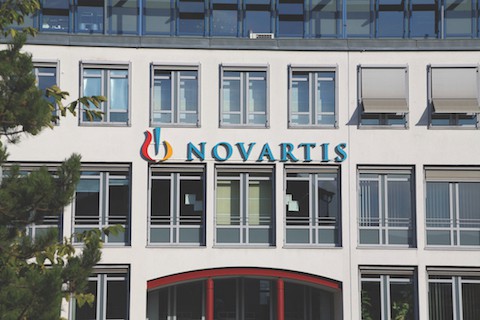
Novartis has unveiled positive phase 3 data for its dual combination asthma drug QMF149, strengthening its case for approval with regulators.
The asthma combination regimen, QMF149, is a once-daily fixed-dose combination of indacaterol acetate and mometasone furoate.
The results from the phase 3 PALLADIUM trial were presented a the British Thoracic Society Winter Meeting in London today, and demonstrated that QMF149 met key endpoints.
This includes showing superiority over treatment with mometasone furoate at medium and high doses in improving lung function – the primary endpoint of the study.
QMF149 also met the secondary endpoint of the study, demonstrating a statistically significant improvement in asthma control. It also demonstrated key secondary analyses in efficacy endpoints, including in lung function when comparing the dual combination to a standard-of-care treatment.
According to Novartis, the safety findings were comparable among treatment groups and consistent with the known safety profile of the monocomponents.
“At Novartis, we are continually striving to help patients with asthma, and we are delighted to present this positive new data showing important benefits for patients, as a part of that journey,” said Linda Armstrong, respiratory development unit head, Novartis.
“With the availability of PALLADIUM outcomes, we now have even more evidence of the potential benefits of this combination treatment, which could benefit millions of people with uncontrolled asthma,” she added.
Uncontrolled asthma is a small but significant market, with 40% of asthma patients at GINA step 3 (which is characterised by daytime symptoms every day, nocturnal symptoms less than 4 nights a week and daily use of inhaled short-acting bronchodilators) having poor control over their condition. This jumps to 45% of patients at GINA step 4 (asthma sufferers with a more severe presentation of the condition).
The respiratory market has been largely dominated by GlaxoSmithKline, but its been facing generic competition for its ageing asthma blockbuster Advair.
However, it was still able to establish its next-generation of respiratory products – this includes Trelegy (vilanterol/umeclidinium/ fluticasone furoate), which brought in £139 in Q3 and Nucala (mepolizumab), which brought in revenues of £203m in the same quarter.
However, GSK is not the only pharm company vying for space in the asthma market – Sanofi/Regeneron’s Dupixent (dupilumab) is also establishing a presence in the therapy area, as well as AstraZeneca’s asthma injection Fasenra (benralizumab).




